
Expert Circuit Breaker Installation in Longmont, CO
A properly installed circuit breaker is the cornerstone of any safe and functional electrical system. Whether you're building a new home, remodeling, or upgrading an outdated panel, professional circuit breaker installation ensures efficient power distribution, electrical safety, and peace of mind. In Longmont, CO, where both historic homes and new developments coexist, it’s critical to have breakers that meet current safety standards and usage demands.
Get Free Quote!
What Is a Circuit Breaker and Why It's Essential
A circuit breaker is an automatic electrical switch designed to protect an electrical circuit from damage caused by overload or short circuit. When excessive current flows through a circuit—typically due to a fault—the breaker trips and interrupts the flow of electricity, preventing overheating, fires, or equipment damage.
Unlike fuses, which need to be replaced after a single use, circuit breakers can be reset. Their reusability, responsiveness, and integral role in modern safety codes make them indispensable in residential and commercial environments alike. Especially in Colorado's variable climate, from frigid winters to scorching summers, the reliability of your breaker system directly affects your comfort and safety.
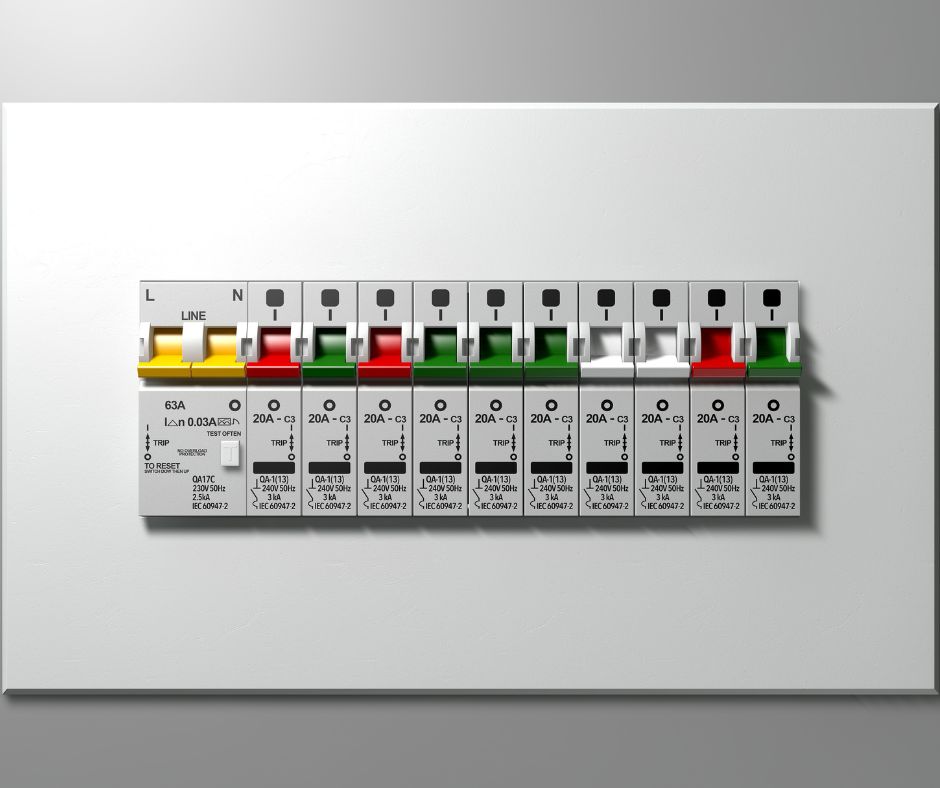
Types of Circuit Breakers We Install
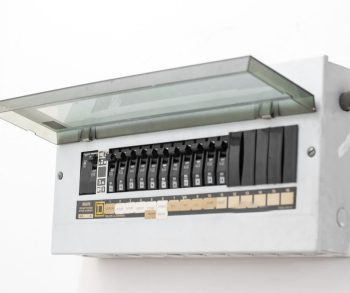
Standard Circuit Breakers
These are the most commonly used breakers in residential systems. They protect 120-volt circuits and are typically found in lighting and outlet circuits. Standard breakers detect and interrupt current in the event of an overload or short circuit, preserving the integrity of the wiring and preventing fire hazards.
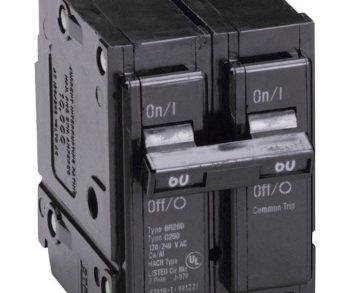
Double Pole Circuit Breakers
Designed to handle 240 volts, double pole breakers are ideal for large appliances such as air conditioning units, electric dryers, ovens, and water heaters. They connect to both hot bus bars in the panel and offer more robust protection for circuits with high power demands.
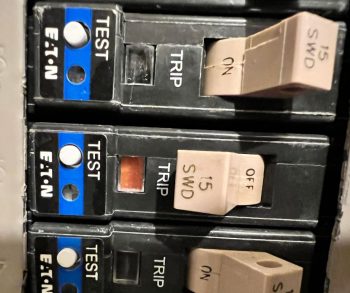
GFCI Breakers
Ground Fault Circuit Interrupters (GFCIs) are essential in areas where water and electricity might come into contact—such as bathrooms, kitchens, garages, and outdoor receptacles. These breakers monitor the flow of current and instantly shut off power if a ground fault is detected, reducing the risk of electric shock.
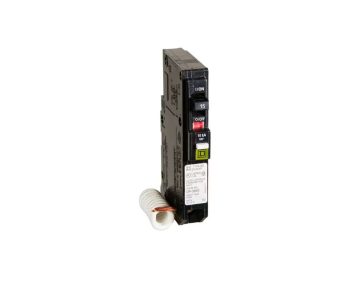
AFCI Breakers
Arc Fault Circuit Interrupters (AFCIs) are designed to detect unintended electrical arcs, which are often precursors to electrical fires. AFCIs are especially critical in bedrooms, living areas, and spaces with aging wiring. Their role is preventative, stopping problems before they escalate into fire hazards.
Our Circuit Breaker Installation Process
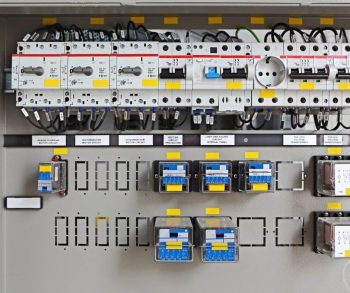
Site Assessment & Planning
Every installation begins with a comprehensive evaluation of your property’s existing electrical system. Technicians assess current load demands, safety compliance, and future scalability. Whether it’s a new circuit addition or a panel overhaul, a tailored strategy is created for your specific needs.
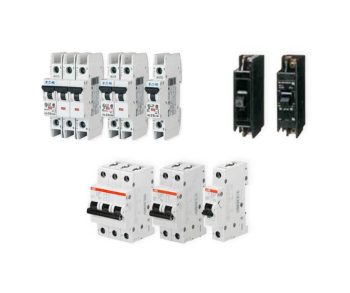
Breaker Selection
The next phase involves selecting the appropriate type and size of breakers. Factors like appliance voltage, environmental conditions, and code requirements in Longmont dictate the breaker specifications. Using high-quality components ensures long-term reliability.
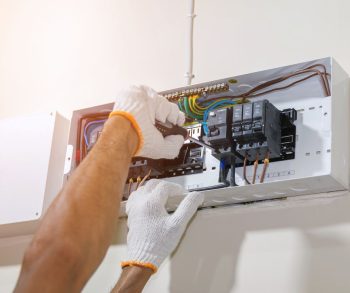
Professional Installation
Installation is carried out by licensed electricians adhering strictly to National Electrical Code (NEC) standards. All wiring connections are meticulously tested, labeled, and documented. Final verification includes load testing and operational checks to confirm safety and performance.
Signs You Need a New Circuit Breaker Installed or Replaced
- Frequent tripping or breakers that won’t reset
- Burn marks or heat near the breaker panel
- Outdated panels (especially those over 20 years old)
- Upgrading appliances or adding major electrical loads
- Buzzing sounds or electrical odors from the panel
- Flickering lights or uneven power distribution
Neglecting these signs can result in power failures, equipment damage, or worse—electrical fires. Proactive replacement or installation ensures system integrity.
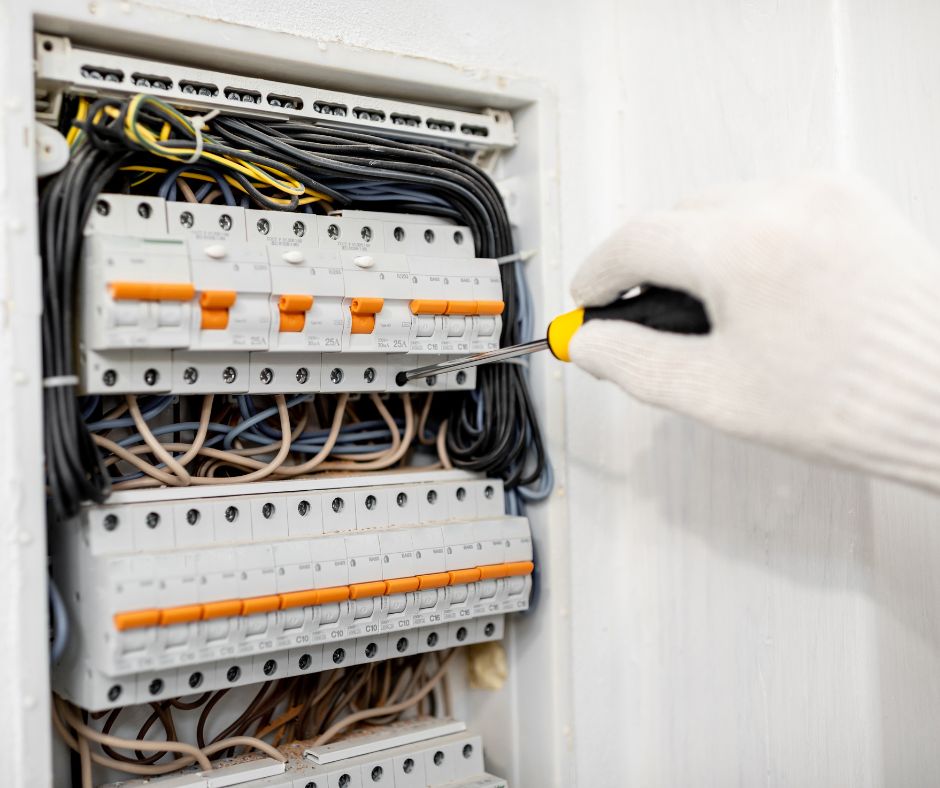
Why Choose Excel Electric for Circuit Breaker Installation
![]()
Licensed & Experienced Electricians
Each electrician is fully licensed, insured, and trained in the latest installation standards. This guarantees precise work backed by deep technical knowledge and compliance with all local and national codes.
![]()
High-Quality Parts & Tools
Excel Electric sources only premium-grade breakers and tools from trusted manufacturers. This ensures not only safe installations but also long-term system stability and performance.
![]()
Transparent Pricing & Timely Service
Clear estimates, no hidden fees, and punctual service appointments make the experience hassle-free. Whether you need a single breaker replaced or a full panel upgrade, projects are completed on time and within budget.
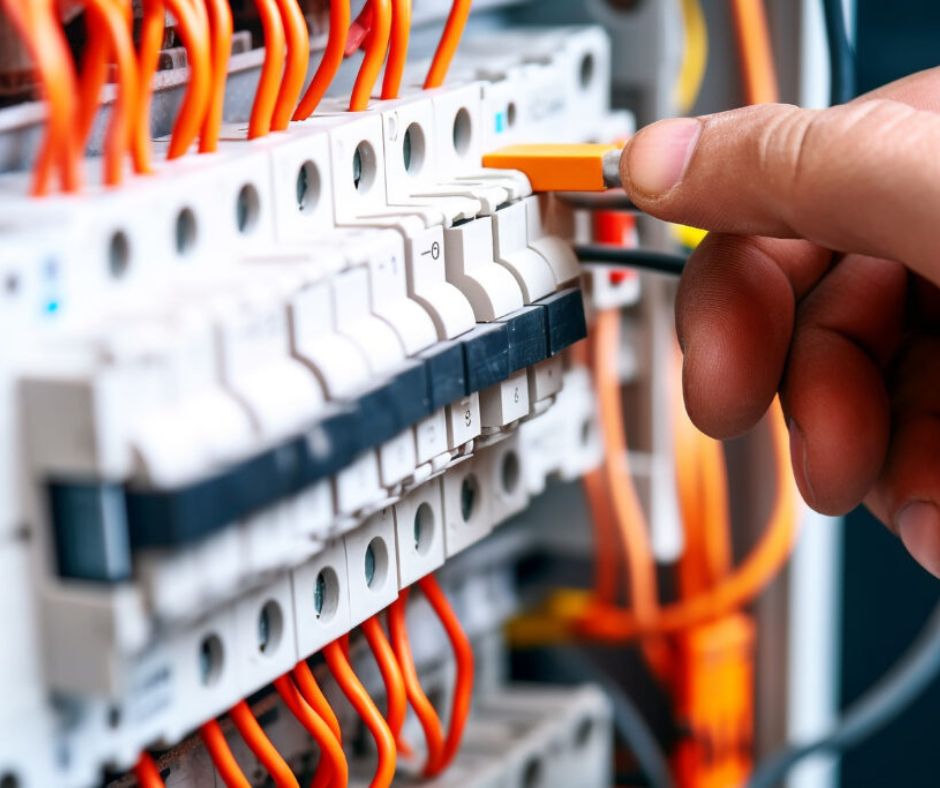
Schedule Your Circuit Breaker Installation Today
Delaying necessary electrical upgrades can put your home or business at risk. A professionally installed circuit breaker is an investment in safety, efficiency, and future scalability. Contact Excel Electric today to schedule a site inspection and receive a personalized quote tailored to your property's electrical demands in Longmont, CO.
Comparison Table
| Service | Type | Ideal For | Estimated Cost | Key Benefits |
| Standard Circuit Breaker Installation | Residential | Basic 120V circuits | $150–$300 | Prevents overloads on everyday outlets and lighting systems |
| Double Pole Breaker Installation | Residential & Commercial | 240V appliances (HVAC, ovens) | $250–$450 | Handles large current loads with enhanced protection |
| GFCI Breaker Installation | Residential | Kitchens, bathrooms, outdoors | $200–$400 | Protects against electrical shock in moisture-prone areas |
| AFCI Breaker Installation | Residential | Bedrooms, living rooms | $250–$450 | Protects against arc faults that can lead to electrical fires |
| Breaker Panel Upgrade | Residential & Commercial | Outdated panels | $1,200–$3,000+ | Increases capacity, ensures safety, and supports modern power demands |




